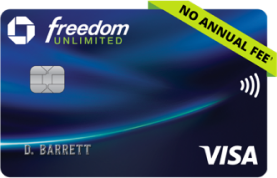![]()
![]()
![]()
![]()
Getting Approved with Bad Credit at Capital Bank
Bad Credit can often feel like an insurmountable barrier when seeking financial opportunities, especially credit cards.
However, options exist for those looking to rebuild their financial standing.
This article will delve into the various credit card options available through Capital One, including secured and unsecured cards aimed at individuals with bad credit or limited credit history.
We will explore the pre-approval process that allows applicants to assess their eligibility without impacting their credit score, providing a pathway towards financial recovery and empowerment.
The Challenge of Bad Credit and Why Capital Bank Matters
Struggling with bad credit can feel like fighting an uphill battle where every step toward financial freedom seems blocked.
Many people find themselves trapped in a cycle, getting denied credit because of past mistakes, yet unable to show progress because no one will give them a chance.
Simple goals like renting an apartment, financing a car, or getting a credit card become overwhelming obstacles.
The emotional toll builds as opportunities vanish and options shrink, all while the need for a second chance grows stronger.
Yet, hope does exist.
Capital Bank recognizes that people are more than a number on a report.
It offers tools that allow customers to prove their reliability, such as credit-building cards designed for bad credit, even for those with limited credit history.
These solutions let applicants get pre-approved with no impact on their score.
Rebuilding credit is possible when given the right support at the right time.
That’s where Capital Bank steps in—not just as a lender, but as a genuine partner in recovery, helping open financial doors once closed.
Secured Cards for Building or Rebuilding Credit
Capital One offers secured credit card options designed to help users build or rebuild credit, with flexible deposit amounts that directly influence your initial credit limit.
Applicants may qualify for a credit line of $200 by depositing as little as $49, though the exact amount depends on your individual creditworthiness.
According to the Capital One Platinum Secured Credit Card details, deposit amounts vary based on your application and typically range from $49 to $200, but you can increase your limit by voluntarily depositing more.
This flexibility improves your chances of approval even with bad credit, as the deposit reduces the lender’s risk.
In addition to increasing your approval odds, your deposit plays a key role in establishing your spending limit.
A higher secured deposit means a larger credit line, which can positively affect your credit utilization rate and overall credit score.
More importantly, Capital One engages in credit reporting to all bureaus—Equifax, Experian, and TransUnion—on a consistent monthly basis.
This gives cardholders the opportunity to demonstrate responsible payment behavior and build a positive credit history over time, making it possible to qualify for unsecured cards in the future without an additional deposit.
Entry-Level Unsecured Options
Capital Bank offers entry-level unsecured credit cards tailored for individuals with limited or poor credit history, providing a pathway to rebuild credit with no deposit required.
Approval criteria focus on factors beyond just your credit score, often considering income and existing debt obligations to assess risk fairly.
While these cards typically come with higher annual fees and interest rates, they allow access to a revolving credit line without needing upfront collateral, unlike secured cards that require a cash deposit.
To check your eligibility with ease and without affecting your score, Capital Bank provides a pre-qualification process through their Unsecured Platinum Mastercard®, helping users take that crucial first step towards rebuilding their financial profile.
How Capital Bank’s Pre-Approval Protects Your Score
Capital Bank offers a streamlined pre-approval process that helps protect your credit score, especially for applicants with bad or limited credit history.
The process begins with a pre-approval request that performs a no hard credit inquiry.
This is a relevant feature for individuals concerned about damaging their score while exploring card options.
Applicants simply provide basic personal and financial details such as name, address, income, and employment status.
This information enables Capital Bank to assess the applicant’s eligibility using a soft pull, which doesn’t impact the credit report.
Once eligibility is confirmed, applicants will receive a pre-approval decision almost instantly.
If approved, they are presented with personalized offers for credit cards, including options designed for rebuilding credit.
From there, individuals can choose to formally apply, which may then involve a full application and possibly a hard inquiry.
This allows users to act confidently, knowing their credit has been safeguarded throughout the initial steps.
- Submit personal and financial details through the online form
- Capital Bank performs a no hard credit inquiry using a soft pull
- Receive a decision in seconds
- View personalized credit card offers based on eligibility
- Decide whether to proceed to full application
Practical Tips to Rebuild Credit with Capital Bank Cards
Capital One credit cards offer a practical path for individuals aiming to rebuild credit.
Through responsible use, these cards can establish habits that demonstrate financial reliability to credit bureaus.
One of the most impactful behaviors is making on-time payments consistently—this alone influences a large portion of your credit score.
Setting up automatic payments or personal reminders ensures your account stays in good standing.
If you’re using a secured Capital One card, the deposit provides a safety net, but it’s critical to remember that you must treat all charges like real debt.
Equally important is controlling how much of your credit line you use.
Keep your balance well below the limit—ideally under 30%—to show lenders you’re managing credit responsibly.
According to Capital One’s guide on building credit, staying active on your credit while keeping balances low helps build trust.
Lastly, monitor your credit reports regularly to identify errors that can be corrected before they cause harm.
- Pay every bill on time, even the minimum
- Keep credit utilization under 30% at all times
- Monitor your credit report via annual checkups
- Use automatic payments to avoid missing due dates
Capital Bank vs. Other Issuers: A Side-by-Side Snapshot
Applicants rebuilding their credit often compare financial institutions to find accessible cards and support.
Capital Bank has positioned itself as a reliable issuer for those with poor credit, especially through its tailored products like the OpenSky® Secured Visa® Credit Card.
By evaluating offerings such as fees, ease of approval, and credit-building tools, borrowers can make informed choices.
| Capital Bank (OpenSky Visa) | Capital One (Secured Mastercard) | Credit One Bank (Platinum Visa) | |
|---|---|---|---|
| Annual Fee | $35 | $0 | $75 first year, $99 afterward |
| Approval Ease | No credit check | May consider low scores | |
| Credit Building | Reports to all three bureaus | Reports to all three bureaus | Reports to all three bureaus |
Thanks to its no credit check policy and consistent reporting to major credit bureaus, Capital Bank’s OpenSky® Visa stands out for individuals who may have been denied elsewhere.
Though not fee-free, OpenSky’s accessibility and approval approach provide a foundation for rebuilding credit when it matters most.
In conclusion, Capital One offers practical solutions for individuals facing the challenges of bad credit.
By exploring secured and unsecured card options, as well as the pre-approval process, individuals can take significant steps towards rebuilding their credit and achieving financial stability.






